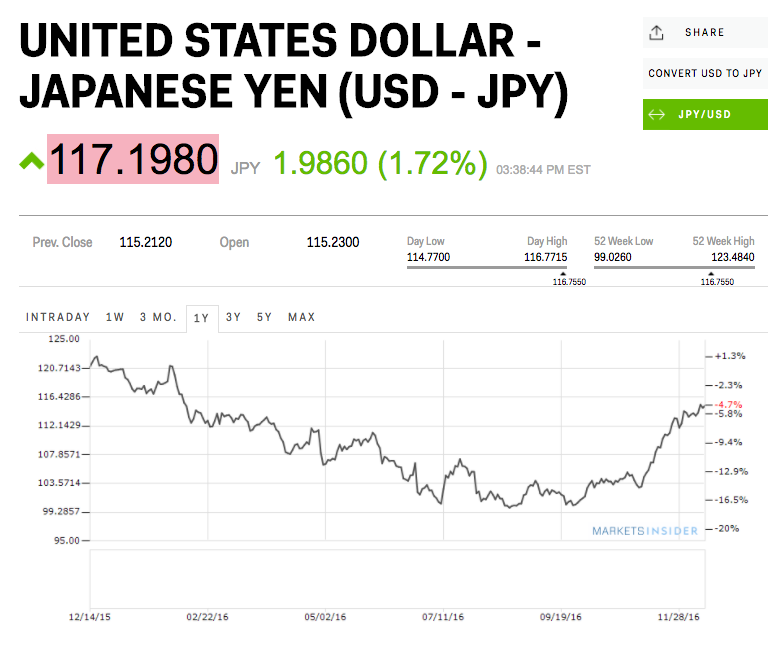The Japanese yen is plunging after the Federal Reserve decided to raise its benchmark interest rate by 25 basis points to a range of 0.50% to 0.75%, as virtually all market watchers were expecting.
The currency is down by 1.7% at 117.20 per dollar as of 3:37 p.m. ET.
Earlier in the morning, the yen was slightly stronger against the greenback.
In its unanimous decision, the Federal Open Market Committee (FOMC) noted improvement in the jobs market and the drop in the unemployment rate to a pre-recession low.
Additionally, the committee upped its expectation for the number of hikes in 2017, up to three from the prior forecast of two.
The yen has weakened against the greenback since Donald Trump's election in early November after hovering around 100 per dollar earlier this year.
Separately, on Wednesday, Japan's Tankan survey suggested that there was an improvement in corporate sentiment for manufacturers in December.
The business conditions for large manufacturers index rose to 10, up from the prior month's reading of 6, while the index for large non-manufacturers remained at 18.
"The business sentiment among Japanese companies looks fairly resilient even despite the yen appreciation and the subsequent losses in Nikkei stocks earlier this year, but the Trump surprise does not seem to have specifically encouraged Japanese firms," wrote CitiFx Strategy's Osamu Takshima in a note.

